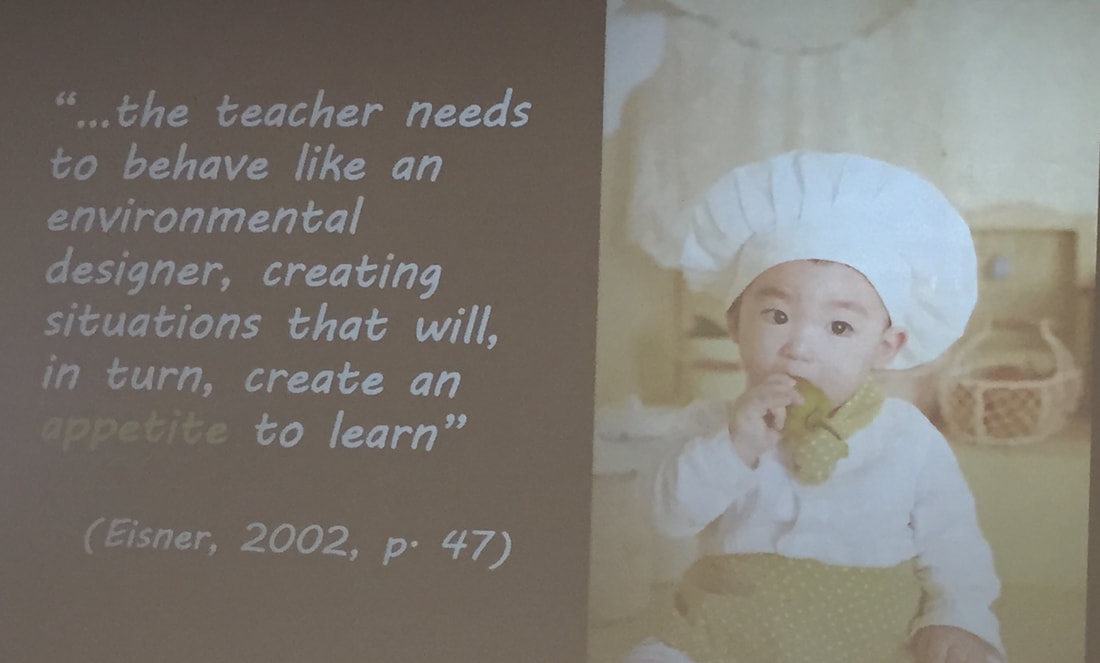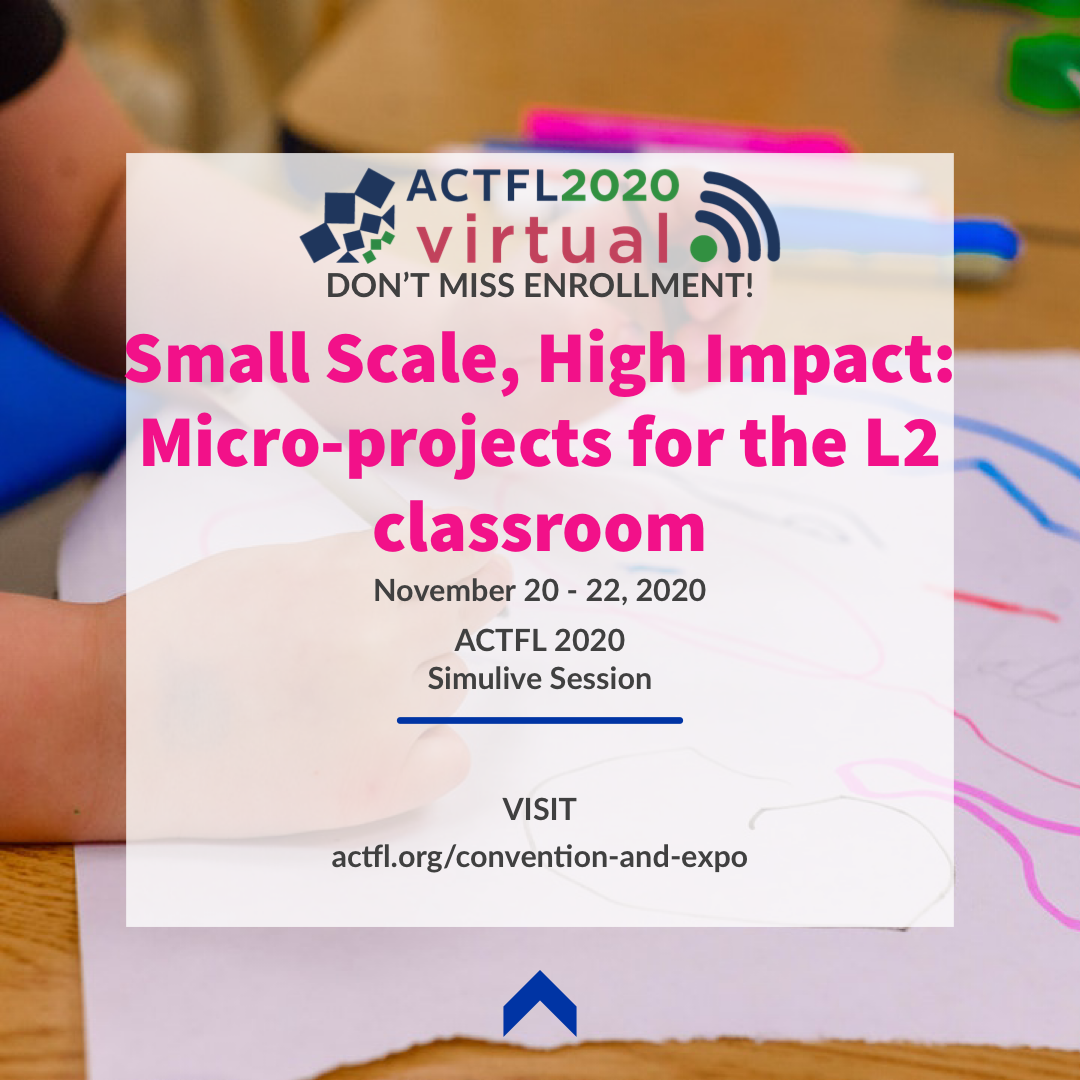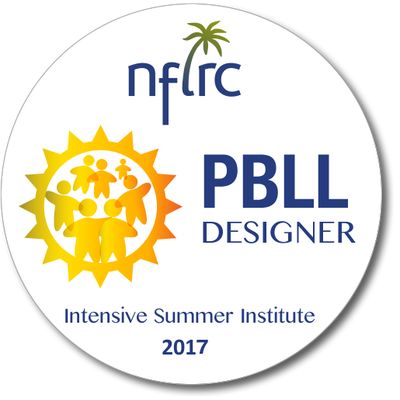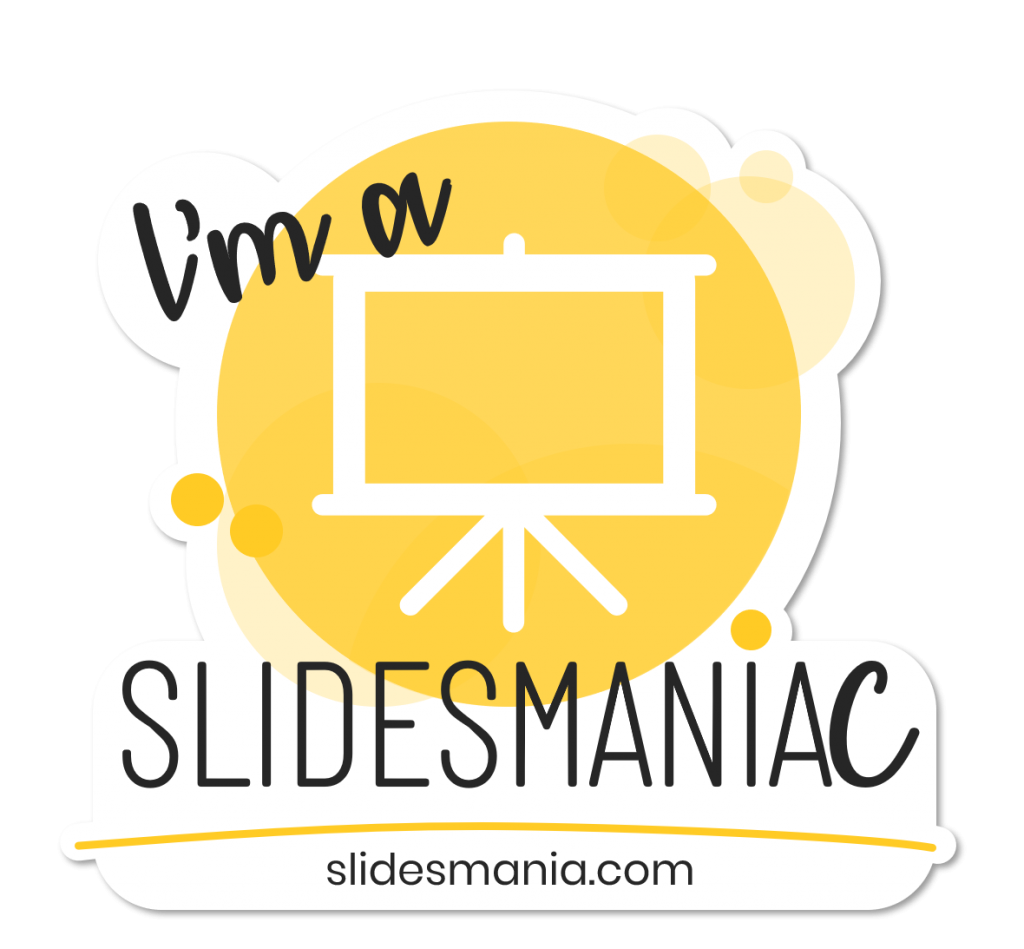|
So your students and you love making/presenting class projects! Let me introduce you to PBL and PBLL.
First of all, let's look into "The differences between projects and Project-based Learning". At the time of this post, I have been a participant of the online institute above-mentioned hosted by the NFLRC at the Univeristy of Hawai'i at Manoa which focuses on how to go from Project-based Learning (PBL) to Project-based Language Learning (PBLL). In this online institute, we are working on how to transfer the 8 essential elements of PBL into our language classes and thus create a true PBLL. So why PBL? PBL, whose advocate is PBLWorks (former Buck Institute for Education), pursues 8 essential elements which engage students in learning that crosses borders and allows them to work on real-world issues and present their solutions to an audience beyond school. In short, we should not really just have our students make projects but rather work on wholesome projects that reach beyond our brick and mortar settings. I invite you to further read into: "Developing globally competent students through PBL" PBL requires planning and a buy-in from your school administration and both teachers and students, especially as many of our students are so used to the teaching ways of traditional schooling. Nonetheless, if you plan to start using PBL, make sure you are able to scaffold* the language learning/PBL process for your students. Here are a few tips to get you started! * More information about scaffolding language learning PBLL-style at a later time!
0 Comments
One option could be to use Quick Rubric which does not require you to share too much of your personal information.
Some things to take into consideration are:
There are four dimensions of knowledge and skills:
Yao Hill, our facilitator and assessment expert, has shared the following repository in which she has compiled some sample projects, sample interculturality SLOs, and learning outcomes for World Languages. You can also find the following resources very handy:
|
Join us this November at ACTFL 2020 for our simulive session:
Archives
June 2020
CategoriesEl profe CalderónMy experiences attending the Fundamentals of Project-Based Language Learning (PBLL) Online Institute Curated by
Cherice Montgomery, Ph.D. |





 RSS Feed
RSS Feed
